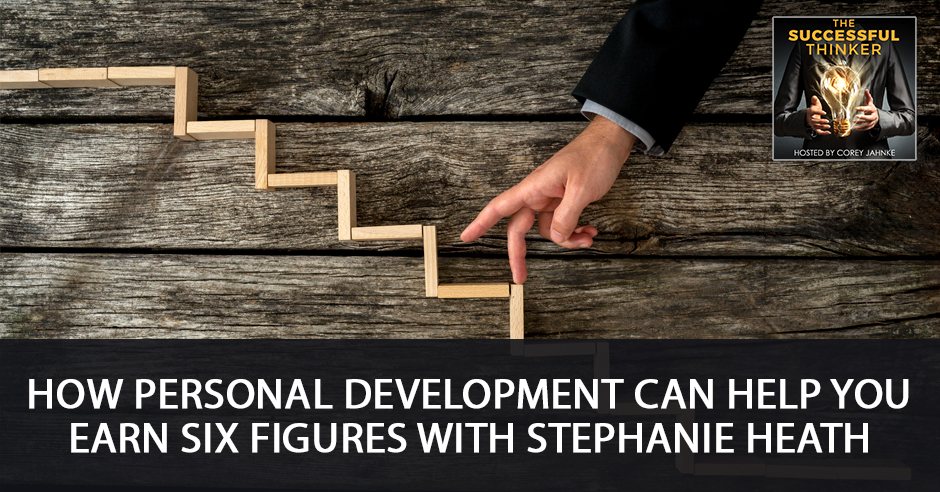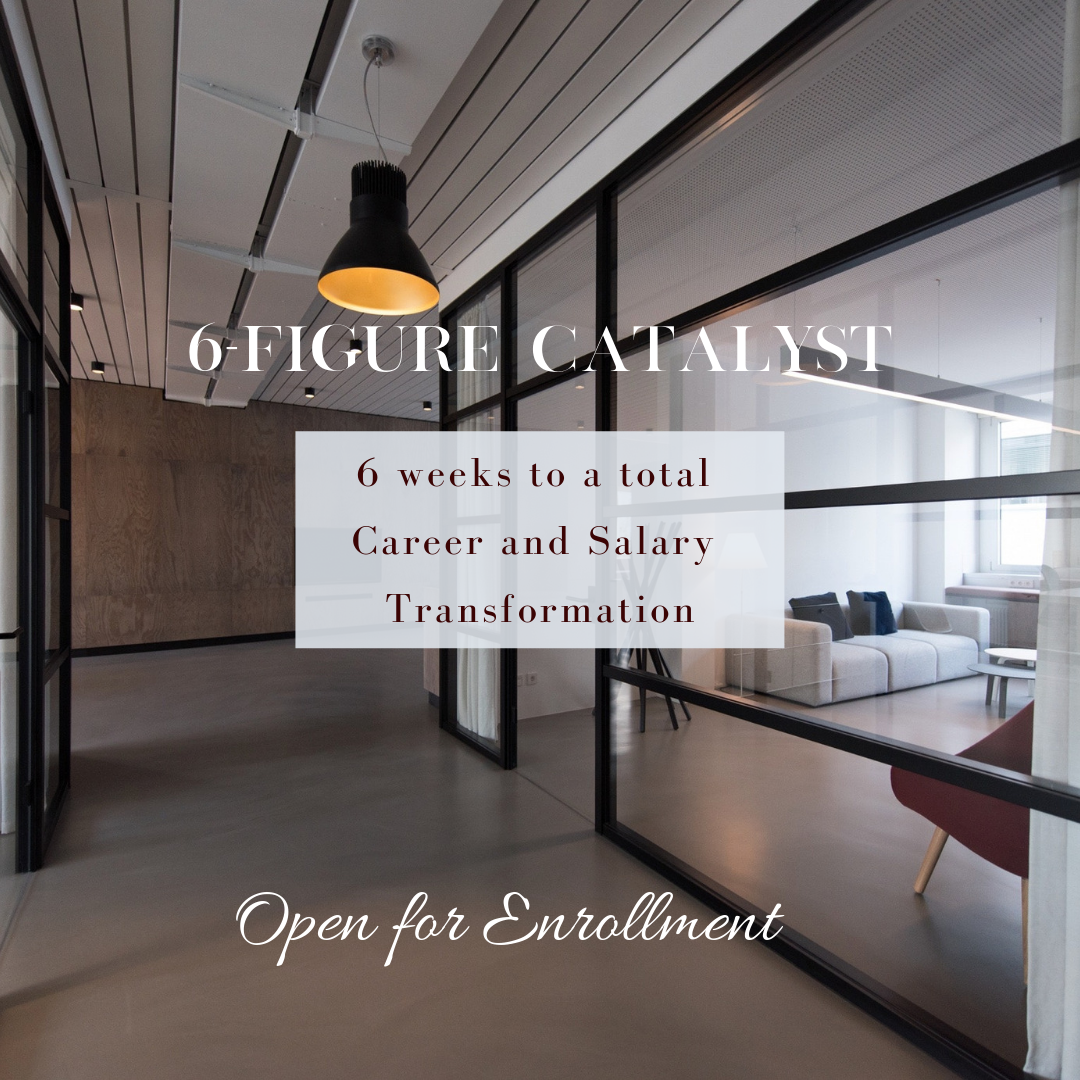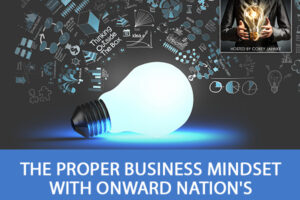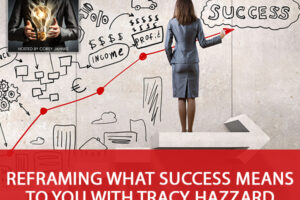
Demolishing your goals can be challenging at times, but once all of the roadblocks are clear, nothing beats the satisfaction and fulfillment it gives. These barriers differ, but the worst one that could pull you from achieving success is yourself. CEO of Soul Work And Six-Figures Stephanie Heath shares her journey about how she used personal development to grow into higher-paying positions and how she has turned her success into a passion for helping women step up and step into the higher-paying positions that they deserve. As someone who used to be a shy little violet, Stephanie reveals what she did to break out of her shell and into the life she is proud of.
—
Listen to the podcast here:
How Personal Development Can Help You Earn Six Figures with Stephanie Heath
Why You Should Be Asking For More And Refusing To Settle For Less
We have a special guest coming all the way from the West Coast. This young lady has it going on. She is out there talking to women and helping coach them to become the women they always wanted to be. Her name is Stephanie Heath. She’s a career coach. She’s the founder of Soul Work and Six Figures. She helps women negotiate soul aligned six-figure salaries and step into their leadership at work. Stephanie, how are you?
I’m good. Thank you so much for that introduction, Corey. I appreciate it. I’m doing quite well.
Would you please tell our Successful Thinker audience out there a little bit of your story, how you got into career coaching and working with women?
I have been a recruiter and a talent acquisition manager lead my entire career. It came to a point where I had to have someone working underneath me or alongside me as an assistant. I had to speak up for myself, maybe ask to go to a certain conference or maybe have the scheduler join my team and think of myself as someone who has a team. I struggled with that a bit, going through that process of, “This is what I need to step into, to become to be a successful contributor on my team and with my company,” and realizing that I had to let my ego aside. Understanding what those steps look like is how I decided to provide this to other women. I’ve been there and I know how crappy it feels.
I know how much you can affect the other people around you when you can’t step into leadership. Also, the salary negotiation coaching that I provide to women is deeply ingrained. It’s such a huge passion of mine because I didn’t realize for myself and my story how underpaid I was in my early years until I started thinking about it. Being a professional career coach and talking to women and seeing how things that I thought were normal that everyone knows, but they didn’t know. Hearing their stories, it touched me. That’s a bit of why I’m here and why I’m doing this work. That’s an introduction to me.
You said something great. You said, “Who did I have to become to do the work I wanted to do and be paid what I deserve to be paid?” One of the things I think that successful thinkers do is they realize it’s not what do I have to do, it’s who do I have to become. Can you tell me how you began to walk down that road in that personal development space?
There are two parts to that question and thank you for asking. It’s important. It’s the basis. Professionally, I realized that I needed to change and become a leader after I went to a conference. I’ve always been someone who’s been quite soft spoken. I spent some time living in a country where that was valued too. I came back and was offered this amazing position, all the perks and I still was operating as an assistant, running behind everyone and being their assistant when I had my own and I needed to own my department. I realized that this is something that I need to fix. I asked my manager, “Can I go to this conference?” She said, “Sure.”
An entire section of the conference, which was surprising to me, was all about becoming a business partner. Traditionally, with recruitment and talent acquisition, we’re used to running behind the business versus acting alongside them as an advisor. That changed my life. I realized that my company is losing money because of my behavior, my fear and my insecurity. It’s making everything go slowly when I was hired as an expert. You need to take that on. There were some stuff mostly around envisioning myself as this person and this is harming other people. That was the impetus for me to say, “I need to do this.”
When did this personal development start for me? I’ve been someone who’s been obsessed with personal development since I was in elementary school. I went to school for Psychology. I’ve went through every self-help book and did so much in that space and then got sick of it and didn’t do anything, then I went back into it. I think what you mentioned is important because you can be doing all of the right things in your life like showing up at work and if you’re a business owner, putting out good content. If your belief about yourself and what you can do into your world and who you are as a person isn’t solid, it doesn’t matter what you do. It’s important for people to take time aside to work on their issues and develop into who they want to be.
I think it’s so important. I asked a lot of my friends in the leadership space lately, “Is leadership something that you can do?” They all talked about how leadership is something that you develop over time. I was wondering when you first stepped into this space, just like all the Successful Thinkers out there, were you scared?
Success is enjoying the ride that’s taking you to the place you’re trying to get to. Share on XAll the time. There are two sides to that. Fair and being scared, you can decide to believe that that’s you being excited since because viscerally, it feels the same. I’m okay with being afraid. As I mentioned, I’ve been in recruitment my entire career, and in the early days that meant a lot of cold calling, sales techniques and being told no a lot. I’m pretty hardy in that area. I can deal with fear and still do the thing. I definitely do agree that it’s something that you have to develop into. Something that came to mind was a mentor told me that the minute that you actually get over and start believing in yourself is when you are responsible for people that are coming up underneath you. That’s why I said that I don’t have time to feel insignificant or insecure or incapable because I have to make sure that this person feels good and that they can do their job.
That’s excellent. Darren Hardy is the former publisher of Success Magazine. He talks about how your number one job as a leader is to manage the emotional state of your team. It sounds like that’s an important focus for you.
It is an important focus for me when I think of my clients. As a leader, someone who’s managing lots of people, that’s pretty much what your job is. Not too casual of language, but it’s like you’re babysitting people. You’re making sure that they feel heard, understood, valued and they have what they need. That’s what management or leadership is. Also, I’ve only most been responsible for other people, so I can’t speak to this too much, but I would assume that you want to empower them as well.
It’s an amazing thing. A lot of people struggle with delegation because they are afraid to burden other people. You used an incredible word, empower. When you give somebody a job that they didn’t have before or a task, you’re showing them that you feel that you can trust them with this. What you’re doing is you’re growing them. I think it’s important that you recognize that. One of the things that I’ve been doing is I’ve been watching you on Instagram and I’ve been admiring mastery of how Instagram stories work. In fact, you are able to help me with making mine better. I’ve noticed that you’re having a launch coming up very soon. You’re calling the launch The Six-Figure Catalyst. Can you tell me what that program’s about?
That program is a life changer. I know it will change the lives of lots of women. Typically every month, we have a new cohort of women that join The Six-Figure Catalyst. What that program is I manage the entire interview process for you. If you’re someone that’s very busy with work or you’ve in the past been given the short end of the stick in a salary negotiation, even in the back of your mind, you’re like, “I do not want this happen to me again.” You have some issues with asking for the things that you want and there are so many strategies online. What should I do? If you’re someone that is comfortable with letting professionals do their job and investing in that, then it would be a great program for you.

The real benefit is that these are tools that you can take everywhere for the rest of your life. At the end of the day, there are strategies that go into being persuasive and making sure negotiation goes the way you want it to go, but at the core of it is your voice. It’s finding your voice, believing in what you want and knowing that you’re worthy of it. Yes, create an argument to back that up, but knowing that, you probably don’t even have to create this crazy argument. You can just ask for the things that you want and expect to receive them and move about life in that manner. Life tends to make that happen for you. For me, earlier on, I was an hourly employee and I had two positions where I was not given the highest amount.
How did it burn out? I went overseas and I came back. I decided that I am always going to ask for the top of the range. I did not care. I would do that and I wasn’t doing anything too special. The women that I work with tend to be empaths. They tend to be heart-centered, soft-spoken sweet women. I was still all of those things, but I was asking for the most and either you give it to me or you don’t, and so I wouldn’t receive it. That’s what I would be getting to the women that joined the catalyst. It’s letting them know that it’s okay to be who they are, but also working through any issues, any limiting thoughts and beliefs that are coming up that are the reasons behind why maybe they haven’t asked for an assistant at work even though they’re drowning. The reasons why they think they have to come in at 7:30 AM, leave at 9:00 PM sometimes or do these outlandish things. The catalyst is great. You heal yourself in lots of ways and you typically get maybe a 30% increase because you’re interviewing and we’re asking for the top.
That’s wonderful. Is that currently enrolling?
It’s currently enrolling. It starts on April 8th. We have a masterclass coming up about women. They can attend if they’d like. I go through some key tactics or strategies to negotiate. I’ll talk a little bit about the program then, but they can find out all about it on SoulworkAndSelfies.com/Catalyst and it is enrolling now.
When you’re talking about soul work, what does that mean to you?
Having people in your life that are honest and make you laugh so hard your eyes water and stomach cramps. Share on XIt means the internal work that’s dictating what your life looks like outwardly. We all go through things. Everyone has hurdles that they have to overcome. However, people forget that there is some work that goes into that. You can’t expect to become a marathon runner if you don’t train like one. You can’t expect to get over deep-seated insecurity that you have if you don’t do the work, like journaling or talking to someone or whatever to get over that. I think that, for me at least, that’s the most important part. I’m obsessed with success. Everyone that I’ve researched and watched, they make it a priority to work on their internal issues because you have to. That’s what soul work means.
When I think of somebody coming and sitting down in front of me as an employer, there’s something to be said for the person who has the guts and the confidence to ask for a higher amount in a way that makes me feel that they deserve it. Whereas people who come in and they stammer, I think all of a sudden you will question that person’s ability to do the job, mostly because they don’t portray the kind of confidence that you want someone to hire. Do you do that through coaching? Do you do that through exercises? Do you do that through both?
I do it through both. The first week, we have a one-hour deep dive. It’s one-on-one with me where we go through everything. We talk about the last positions that you’ve had, maybe if you’d gone through burnout. It’s almost like a therapy session, then we build the future that you’d like. We create a blueprint to get there. We talk about all the things on that first call, then following, yes, there are some PDF’s, first in between the actual practical steps in the interview process. Every week, there’s a live call with me with the other women. There are only three women that will be in the April round and there are two spots left, so every week there’s a call and we talk about whatever assignment that was. If I hear you saying some limiting beliefs, if I ask her, “Isn’t that too much? Why would they give that to me?” every single time you say something that limits you, I’m going to give you a reason to believe that you can receive that. You’ll have some homework to make sure that you pretty much brainwash yourself into knowing that that’ll happen for you
I love the phrase brainwash yourself because that’s what successful thinkers do. Some people call it affirmations. Some people call it positive self-talk. It’s about if you can’t convince yourself that you’re worthy, how is someone else supposed to be convinced that you’re worthy? That’s wonderful. You mentioned something that lit my internal fire, which was the word obsession. Whether you realize it or not, you said, “I am obsessed with success,” and I love that. To give our listeners a real sense of what your values are, what does the word success mean to you?
Success, first of all, means to me to pave the way for other women. If I can wake up to emails or text messages or anything from women saying, “I overcame this thing,” that is success for me. Obviously, I do want to be abundant financially because I want to open up a school and I want to heavily do a lot of philanthropy. That’s what success would be for me. It’s doing what I love, helping women and getting the feedback from them that they’re better. They have a shortcut after working with me and they’ve gotten what they wanted. It’s being able to create the school.
That’s beautiful. A larger purpose than yourself and yet you want to know that your work is meaningful. Is that what I understand?
I would say so. It’s important to know that. I like hearing that it helps, so yes.
That’s wonderful. I think that when we take and make a bigger purpose than ourselves, then that fuels things like vision boards and the journaling that you talked about. Obviously though, when we have big goals and big things that we’re working towards developing people into six-figure earners, there’s going to be obstacles. When obstacles present themselves in your life, Stephanie, what kind of strategies, tactics, techniques do you use to overcome them? How would you help your clients overcome them?
It would depend on the type of obstacle. I don’t have issues with external obstacles because I’ve been in a business where I have to sort of persuade people or become friends. I can typically to do those things. what comes to mind immediately is nowadays, I’ve been doing a lot of kriya. I’ve been focused on Kundalini. My mentor, she likes to call it to stop, drop and kriya. That would be like a prayer or doing some breath work, because I strongly believe that it doesn’t matter what’s happening externally. You have to get your internal together. That’s something that I’ve been doing. I don’t give up. I’ve always been someone that will keep going. I’m okay with hearing no. There’ll be an obstacle for a moment, but then I’ll deal with it and move forward.
What you’re talking about, sounds to me like you’re asking yourself the question of what is it in me that has created this obstacle?
Being able to have financial freedom. Share on XThat’s a great question. I don’t think I’ve gotten that far yet. That doesn’t come to mind, but I know that that is true, so yes.
It’s a difficult question because as you said, every obstacle develops as it develops. A lot of times, the hardest part about life is that you generally don’t see those obstacles coming. What I’m getting from you is that you have a passion for the work you do and that fuels you to drive right through whatever obstacle might present itself to you.
For sure. my background, recruitment, there are always obstacles. There’s always another competing offer. There’s always something. It’s not a big deal. It’s not expected, but let’s figure it out.
I think that’s the big thing too. You’re always moving forward and figuring it out. I think a lot of people stop short. In this day and age where you can YouTube a video, you can Google things, you can find wonderful people like yourself to help you, there should be no reason why you’re stopping. One of the things that are important, though, is for you to have a big eye on the big picture. When you are looking at your goals or setting up these wonderful dreams like running a school, making an impact on the world and helping women, how do you go about goal setting and setting up your dreams for the short and long term?
I’ve had a few different strategies over the years. I write down my long-term goals, my big why. That is three years, five years, then one year. I have it over my desk. Every month, I have a new financial goal. That’s it for now. What I do is I pray and I think about what my monthly goal is. I feel it happening and I take inspired action. I ask what I can do today to move me closer to this. I always have a why behind that goal. It’s not like, “I want to buy a white Tesla,” or something like that. It’s like, “This will bring me up to serve my women in a bigger way, serve my women in a more polished way.” That helps. I also have a schedule that I go by. It’s very detailed. It’s usually three weeks out, so I know exactly what I’m doing that day.

That’s wonderful. You’re focused on where you’re going and how you want to get there. One of the things that I do before I bring a podcast guest on is I ask them questions ahead of time so that I know where this person’s mind is and what this person generally runs their life like because I want to bring incredible value to successful thinkers out there. I asked you this question. I said, “Leaders are learners and successful thinkers believe in constant and never-ending improvement.” I asked about your routine and you said something I love. “I’m almost never not reading a book or listening to a podcast.” What kinds of books do you like to read and what kinds of podcasts do you like to listen to?
I was an avid reader when I was younger and I went all in into a self-help work. Because of that, I’ve hit my limit, so I don’t read self-help. I will read fiction that is related to something that I want to learn or I’ll listen to the person in a podcast. The podcasts that I like to listen to are people in my field or other women entrepreneurs, so marketing or salary negotiation. I go to a lot of salary negotiation events. Mostly other women entrepreneurs and I can name drop a few. Libby Crow released a new podcast that is so epic. If you’re an entrepreneur or you want to be, she’s amazing. She talks about what happens behind the scenes of building a business.
A lot of times you’ll find a lot of content on marketing or funnels or whatever. They don’t talk about the psychological confidence, which is the most important part, like worrying about not being able to pay your rent and all sorts of crazy things and healing and stuff. It’s a great podcast. Also, Amanda Bucci and Gabrielle Bernstein. I actually bought her book. I mentioned not doing self-help books. I bought hers because it’s a 40-day daily journal and that’s been life-changing for me. Also, there’s a few. Scott Oldford. He built multi seven-figure businesses. He’d be great for someone who wants that kind of support to. I’d say that’s what I’ve been adjusting lately.
One of the things that I think is important, and I did a Coffee with Corey issue on this, is this business of putting your mind in multiple places. Sometimes, even if it’s not non-fiction literature, sometimes fiction can spark creative imagination and can get your mind thinking in ways it hasn’t sunk before, so to speak. I’m a big believer in spreading out your brain into multiple different areas. I’m glad to hear that you’re doing that. I think it’s so important. One of the things that you mentioned earlier is this business of a kriya. What is a kriya and how does it help you?
I am still quite new to Kundalini. Kriya, I want to say it’s a body posture and something that you’re speaking in a mantra. It’s basically meditation. Your eyes are closed and you’re doing this action for maybe three minutes or one minute or even 72 minutes. It’s a way for your body to relax, to focus on one thing. I don’t want to do it an injustice by explaining it this way. I’m quite new to it, but there are theories behind the way your neuro connections work in healing something. Obviously, it’s the power of belief. There are kriyas for specific things. Right before this, because everything I do has to be of service and I cannot let my ego get in the way of helping someone, I got on and did ego eradicator, which is three minutes of holding your hands out and breathing a certain way.
Being able to find purpose in giving back. Share on XIt’s calmed me. I believe it put my ego in the backseat. There are lots of ones. There’s some for being of service. There’s one called Sa Re Sa Sa. It’s my favorite. It’s where you sit down for eleven minutes. You listen to this beautiful song and you say, “Sa Re Sa Sa.” It’s basically making you a consumer to effectively listen to the trauma or the stories of whomever and be of service to them. You hold space for them so they’re shaped. My business is to make sure women are getting the money that they want. I cannot afford to not let that happen. I do everything I can to make sure I’m like perfectly aligned to help them. That’s my explanation of Kriya Kundalini.
I think it’s fantastic. I think that one of the things that you’re alluding to, and I think it’s so important, is that even though you’re a coach, you’re still working on yourself. You’re still working with mentors and coaches. I think it’s so valuable.
I think initially, I was suspicious of coaches. I’ve always been a proponent of therapy. As I’ve studied successful people, they all have mentors, they all have coaches, they all go on mastermind retreats. Even entrepreneurs, people with multimillion-dollar companies, they still meet once a quarter with a group of other people and talk about what’s happening and get mentorship. It’s necessary.
After all, there is a lot that goes into being a person. What other types of things are you interested in, in terms of when you’re not working on your business, when you’re not working in your business? What types of things do your heart and soul good?
There’s this place called Ecstatic Dance. If you are on the West Coast, Californians have this reputation of being a hippie for a reason. It’s almost like a prayer in movement. It’s where people go and they speak freely. It’s usually in the day and it’s a way to make your body move and be in the moment. There’s a lot to it, but it’s a bunch of people dancing usually in the day. I love to dance. I love dance and swimming and being with animals. I usually do those things when I’m not working. However, I do work a lot because it’s not good to me. Everything I do is pretty much for this “business.”
That’s absolutely wonderful because one of the things that makes people successful is staying kinetic. Dance is a wonderful way to stay connected. Stephanie, I’ve enjoyed speaking with you. Before I let you go though, could you please share with me one message, one gift in your mind that you would give the six-figure women who deserve to earn what they’re worth? Can you give them one golden nugget? One takeaway?
I would say to give yourself grace, first of all. The fact that you’re reading this shows that you want to change, that you’re ready to move forward and get the business that you want. There’s a lot happening behind why you are the way you are. It’s not something that is because it’s you and you’re at fault. No, it has to do with your background and how you were raised, lots and lots of things. You’re super brave. You are incredibly strong and everything that you want and more is coming to you. It’s probably coming to you quicker than you can even imagine. If I could leave you with anything, it would be to drop the feeling of worry right now because it’s ridiculously unnecessary. You don’t need to have it. Smile because the universe is conspiring to bring you exactly what you want. It already has by having you listen to this. Keep trying to get the things that you want. Keep reaching up.
Keep moving forward. Stephanie, one last question. What’s the best way for our audience to reach out and find you out there in the world?
Sure. You can find me via my website, SoulworkAndSelfies.com. I’m on Instagram, @Stephanie.I am.Heath. You can also find me on LinkedIn, Stephanie Heath or you can find the business there, Soul Work and Six Figures. Those are the places I hang out with the most
We’ll have the links to all of that information. Thank you so much for visiting with me and thank you, Successful Thinkers for reading and learning a lot about what your true value is and how you can stay aligned with your goals. Thanks for your time and remember that no matter what happens, I believe in you.
Important Links:
- Soul Work and Six Figures
- The Six-Figure Catalyst
- SoulworkAndSelfies.com
- Instagram – @imstephanieheath
- LinkedIn – Stephanie Heath
- Libby Crow
- Amanda Bucci
- Gabrielle Bernstein
- Scott Oldford
- Coffee with Corey
About Stephanie Heath

Stephanie Heath is a Career Coach and Founder of SoulWork and Six Figures. She helps women negotiate soul aligned six-figure salaries and step into leadership at work.
Love the show? Subscribe, rate, review, and share!
Join the Successful Thinker Community today:



